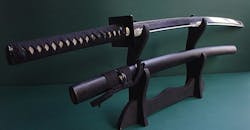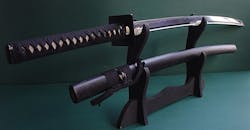In Japanese, the word “takumi” means “artisan” or “master craftsman” and is often applied to those who dedicated their lives to making samurai swords– an arduous process that engages some of the globe’s best metal forging skills, carefully passed down from generation to generation.
Interestingly, this is a word now being used more and more in the motor vehicle world, not just for those who make and design cars – as you can see below in the video clip from Mazda – but for those who service them as well.
Take Lexus, for example – the high-end luxury arm of Japan’s Toyota Group. Lexus is forging two new certified dealership positions based upon concepts taken from the “takumi.”
First is the Vehicle Delivery Specialist (VDS), tasked with introducing customers to their new cars and review the features of each vehicle. Second is the Vehicle Technology Specialist (VTS), tasked to serve as a resource for customers who have any questions about how to use the advanced functions of their vehicle, including Lexus’s new Enform telematics system.
Vince Salisbury, dealer training manager for the Lexus College, explained that to emphasize the importance of these customer-facing positions, Lexus is applying the philosophy of “takumi” to their jobs so they learn to treat customer service as a “craft” – and they are given advanced tools to help them go the extra mile with customers.
While much of the training for Lexus dealership associates is accessed through interactive iPad apps and other electronic downloads, he stressed, the company deemed a more “personal touch” seemed necessary.
“Lexus customers are becoming more and more technologically savvy and we want our dealership associates to be able to communicate effectively with them throughout the sales, delivery and ownership process,” Salisbury said.
In addition to providing technical training, Lexus is training dealership associates to recognize verbal and nonverbal feedback to customize each customer’s experience. Some industries have more experience in this arena, so in addition to identifying the best people currently at their dealerships, some Lexus dealerships are looking outside the automotive realm to recruit and train for these new positions.
Great for Lexus, you might say, but how the heck does this apply to trucking? Well, this theory of taking what in the past might be considered an entry-level position at best and turning it into one considered a “craft” is similar to a re-evaluation of the truck driver’s role by my editorial compatriot Timothy Brady.
In an article last year, Brady argued that truck driving needed to be regarded as a craft, with the creation of a career ”ladder” that reflected the “takumi” philosophy – using titles such as “master trucker” and “master trucker trainer” to note their high-level skills.
Brady stressed that establishing such a career “ladder” and emphasizing the need to develop significant driving skills would be but one way to help generate incentives for drivers to keep piloting big rigs for the long-term – with significant pay grades to reflect the value of the driving skills required for each level of craftsmanship attained as well.
It’s something to think about, at the very least, for if car makers can dealership employees to think of themselves as craftsman and women, why can’t the same occur for truck drivers?

